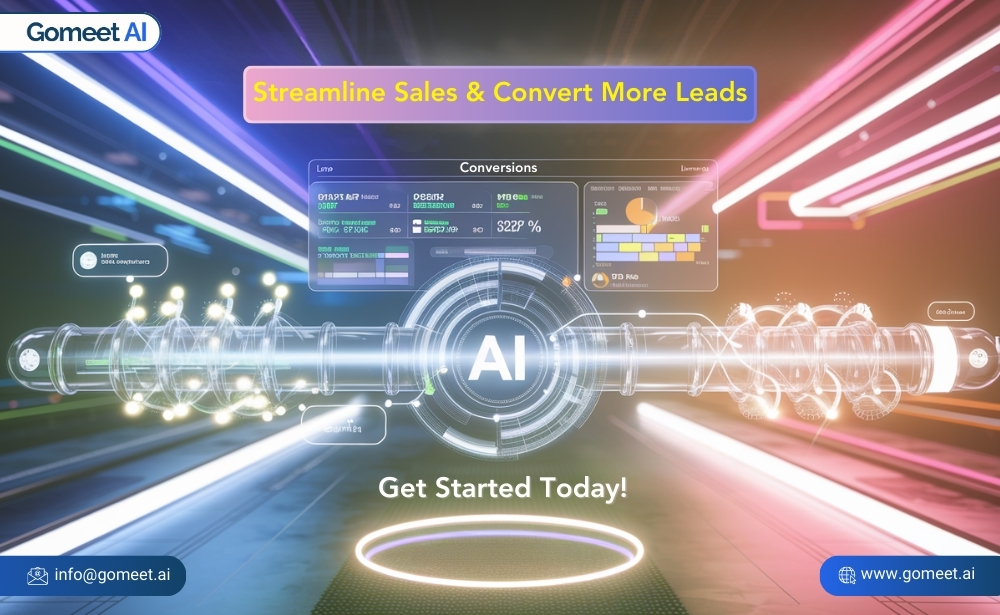Small businesses are under increasing pressure to scale quickly while maintaining efficient sales processes in the competitive B2B world. Sales tracking software has become an indispensable tool for companies looking to streamline their operations, improve lead conversion, and enhance customer relationships. Without effective sales tracking, even the most promising businesses can struggle to stay organized, leading to missed opportunities and lost revenue. In fact, 82% of small businesses report using sales tracking software to monitor leads and improve their sales efficiency. This guide delves into the key features and best practices to help small businesses make the most of their sales tracking systems, ultimately driving better outcomes and maximizing growth. By the end, you’ll have the tools and knowledge to choose the best sales tracking software for your needs and ensure your sales processes are optimized for success.
Section 1: Why Small Businesses Need Sales Tracking Software
Understanding the Sales Funnel
The sales funnel is a crucial concept for businesses to understand, especially small businesses aiming to scale efficiently. At its core, the sales funnel represents the journey of a prospect, from the initial awareness stage to the final decision-making phase. Without effective sales tracking, businesses risk losing valuable opportunities and mismanaging their leads.
Sales tracking software helps businesses keep track of leads, opportunities, and interactions at every stage of the funnel. By systematically managing these stages, small businesses can better forecast sales, improve follow-ups, and increase conversion rates.
Challenges Small Businesses Face Without Sales Tracking
Without the right tools, small businesses often face a range of challenges:
• Missed opportunities: Failure to respond to prospects in a timely manner or track leads properly can result in lost sales.
• Inefficient sales processes: Manually managing leads and tasks leads to inconsistencies, inefficiencies, and a lack of clarity.
• Lack of insights: Without real-time tracking, businesses struggle to make data-driven decisions, which hampers growth.
• Impact on sales forecasting and ROI: Without the ability to track progress, forecasting becomes unreliable, which affects strategic planning.
Benefits of Sales Tracking Software
Implementing the right sales tracking software allows small businesses to:
• Streamline processes: Automate routine tasks like lead nurturing, follow-ups, and reporting to focus on high-priority sales activities.
• Improve lead conversion: Real-time insights help sales teams act on opportunities faster and more effectively, driving better outcomes.
• Better decision-making: Analytics and performance tracking provide valuable data that guide smarter business decisions.
• Enhanced efficiency: By automating processes, sales teams can work smarter, not harder, saving time and increasing productivity.
Section 2: Key Features of Sales Tracking Software for Small Businesses
AI Sales Assistant Software
AI-powered sales assistant software is transforming how sales teams manage their day-to-day activities. By automating routine tasks like lead tracking, follow-ups, and reminders, sales assistants help teams stay organized and responsive.
For example, AI sales assistants can automatically schedule follow-up emails, update CRM systems, and even respond to prospect inquiries based on pre-defined templates. This increases productivity and ensures no lead falls through the cracks.
Sales Automation Software
Sales automation tools are designed to automate repetitive tasks such as data entry, lead scoring, email outreach, and follow-up scheduling. These tools can significantly streamline sales processes, allowing sales teams to focus on higher-value activities like closing deals.
Automated workflows can help move leads through the funnel more efficiently, while automated reminders ensure timely follow-ups. The result? A smoother sales cycle and higher conversion rates.
Automated Sales Funnel
An automated sales funnel nurtures leads from awareness to conversion by automating communication at each stage. For instance, automated emails can be sent to new leads to introduce products, while follow-up emails can be triggered based on a prospect’s engagement with previous messages. This level of automation helps guide prospects down the funnel more effectively and consistently.
AI Sales Intelligence Software
AI-driven sales intelligence software provides deeper insights into sales activities by analyzing historical data and identifying trends. It can help businesses understand customer behavior, predict future sales trends, and optimize sales strategies. Sales intelligence tools also aid in prospecting by identifying high-value leads and providing actionable data on how to approach them.
Sales Outreach Software
Sales outreach software is designed to automate outreach efforts, particularly through email and social media. With tools like email follow-up software, businesses can personalize emails at scale, ensuring that prospects receive timely, relevant communication. This not only boosts engagement but also improves conversion rates by ensuring that no lead is forgotten.
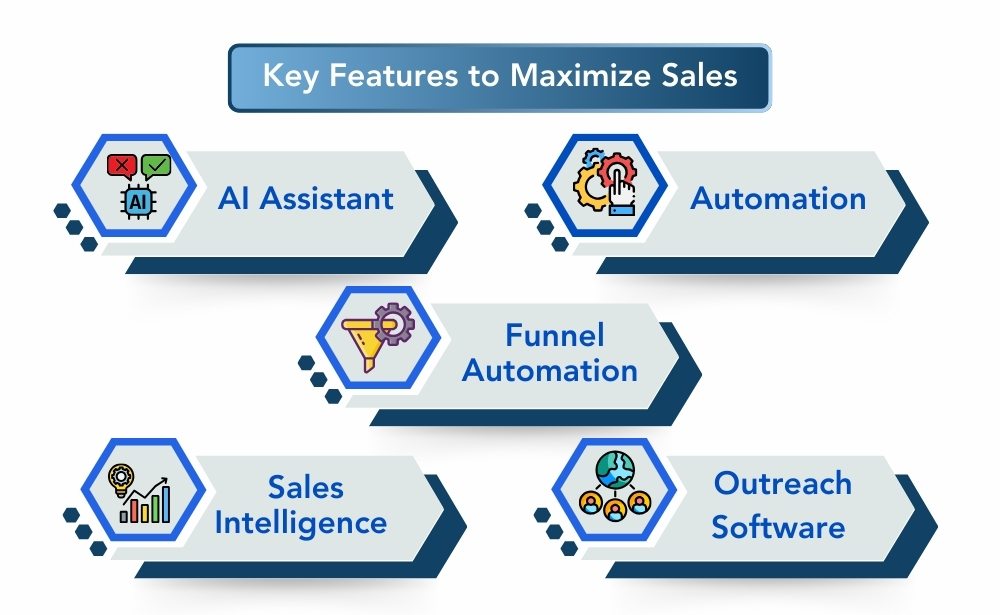
Section 3: Essential Tools for Sales Tracking and Automation
AI Lead Generation Software
AI-powered lead generation tools help businesses find and qualify leads faster and more accurately. These tools use machine learning algorithms to analyze data, identify potential customers, and even predict which leads are most likely to convert. By integrating with CRM systems, AI lead generators ensure that sales teams always have a steady stream of high-quality prospects.
Sales Outreach Tools
Sales outreach tools automate key aspects of communication, from initial outreach to follow-up emails. These tools often include features like customizable email templates, automated follow-ups, and tracking of customer engagement. By using these tools, small businesses can reach more prospects, save time, and increase conversion rates.
B2B Sales Prospecting Software
For small businesses that operate in the B2B space, sales prospecting software is an essential tool for identifying and engaging with decision-makers at target companies. These tools help streamline the prospecting process by enabling businesses to quickly gather key contact information, identify leads with high buying potential, and initiate contact through automated outreach.
Leads Generation Tools
Lead generation tools help businesses source new leads, whether through content marketing, social media, or direct outreach. These tools integrate with CRM systems, allowing businesses to efficiently track and manage leads as they move through the sales funnel. They can also help businesses qualify leads based on engagement, demographics, and behavior.
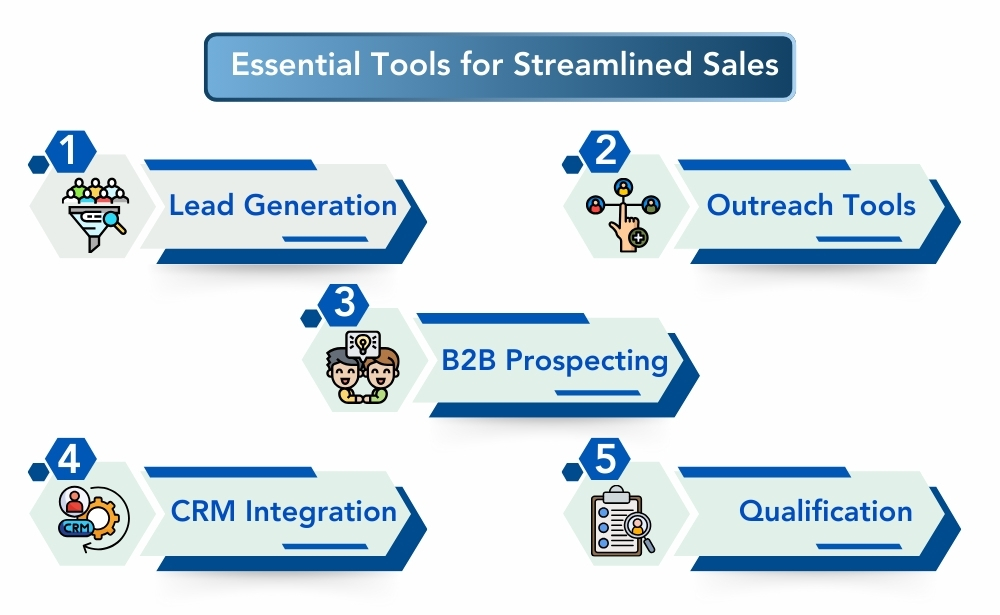
Section 4: Advanced Sales Tracking Features
Sales ROI Calculator
A sales ROI calculator is an essential tool for measuring the effectiveness of sales efforts. It helps businesses understand the financial return on their sales activities by comparing the cost of sales efforts to the revenue generated. This tool is crucial for optimizing sales strategies and refining resource allocation to maximize ROI.
AI Lead Qualification
AI-powered lead qualification tools automatically score leads based on predefined criteria, such as engagement levels, demographics, and behavior. This helps sales teams prioritize high-quality leads, reducing manual effort and improving lead quality.
B2B Meeting Scheduler
Meeting schedulers streamline the process of booking meetings with prospects, ensuring consistency and a smooth customer experience. These tools often integrate with calendars, making it easy to schedule meetings without the back-and-forth communication.
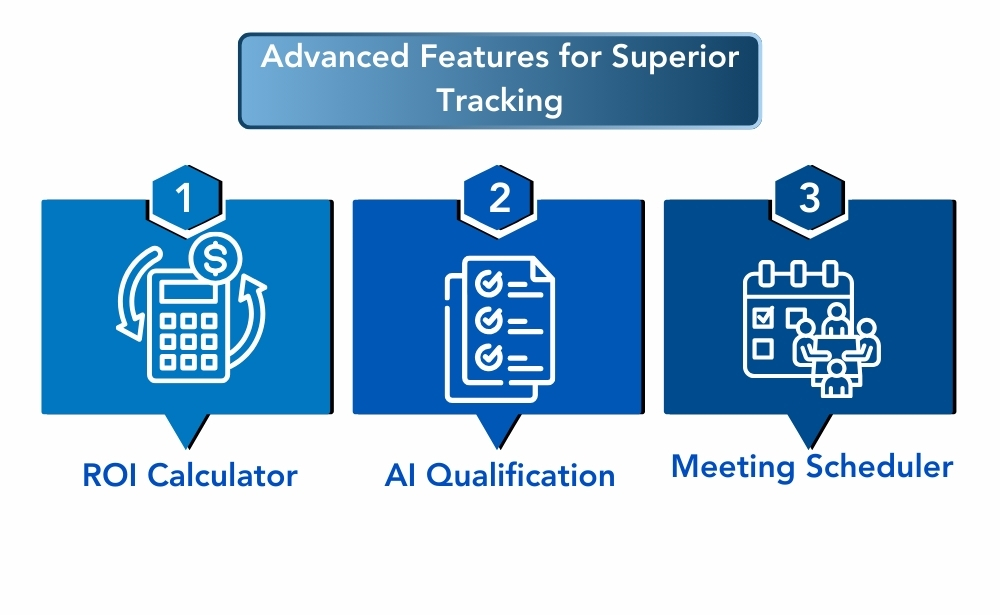
Section 5: Choosing the Right Sales Tracking Software for Your Business
Factors to Consider
When selecting the right sales tracking software, consider factors such as:
• Business size and needs: The tool should match your business’s scale and specific requirements, whether it’s lead generation, follow-ups, or reporting.
• Budget: Look for affordable pricing models that align with your business’s budget.
• Integration: The software should seamlessly integrate with your existing CRM and other tools.
• User-friendliness: Choose a platform that’s easy to use and comes with adequate customer support.
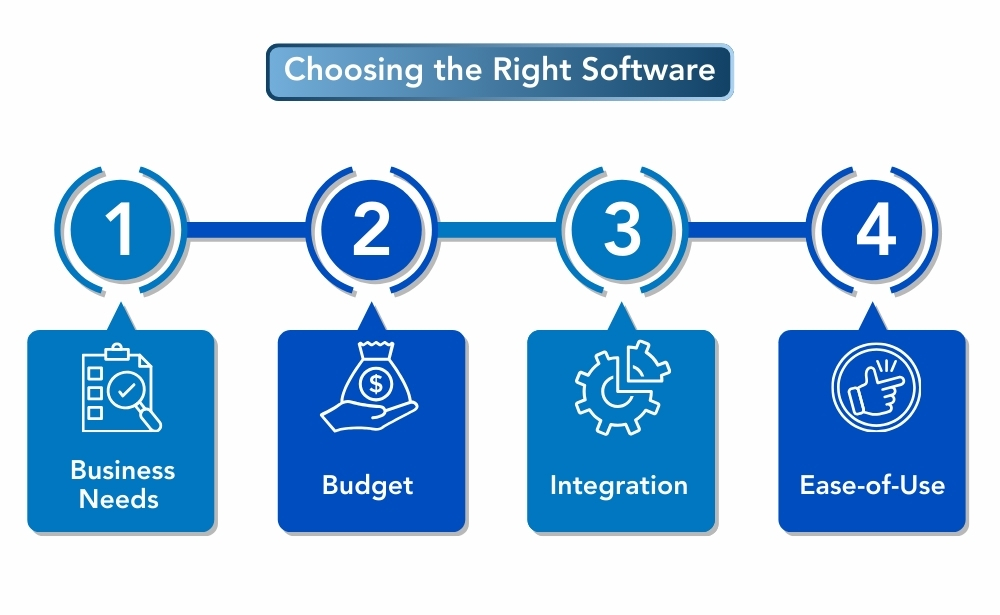
Best Sales Tracking Software for Small Businesses
Some of the top sales tracking software for small businesses includes:
• HubSpot: A robust sales automation platform offering CRM, email automation, and lead tracking.
• Pipedrive: A user-friendly sales CRM with a strong focus on pipeline management and automation.
• Zoho CRM: A feature-rich CRM solution with sales automation, AI insights, and lead tracking capabilities.
• Salesforce Einstein: A powerful AI-driven platform designed to help businesses leverage sales data for smarter decision-making.
Conclusion
Sales tracking software is a game-changer for small businesses, providing the tools needed to streamline sales processes, automate tasks, and improve overall efficiency. By adopting AI and automation, small businesses can enhance their sales efforts, reduce manual work, and ultimately drive higher revenue. Explore the different tools discussed in this guide to find the best fit for your business needs and start optimizing your sales process today.

